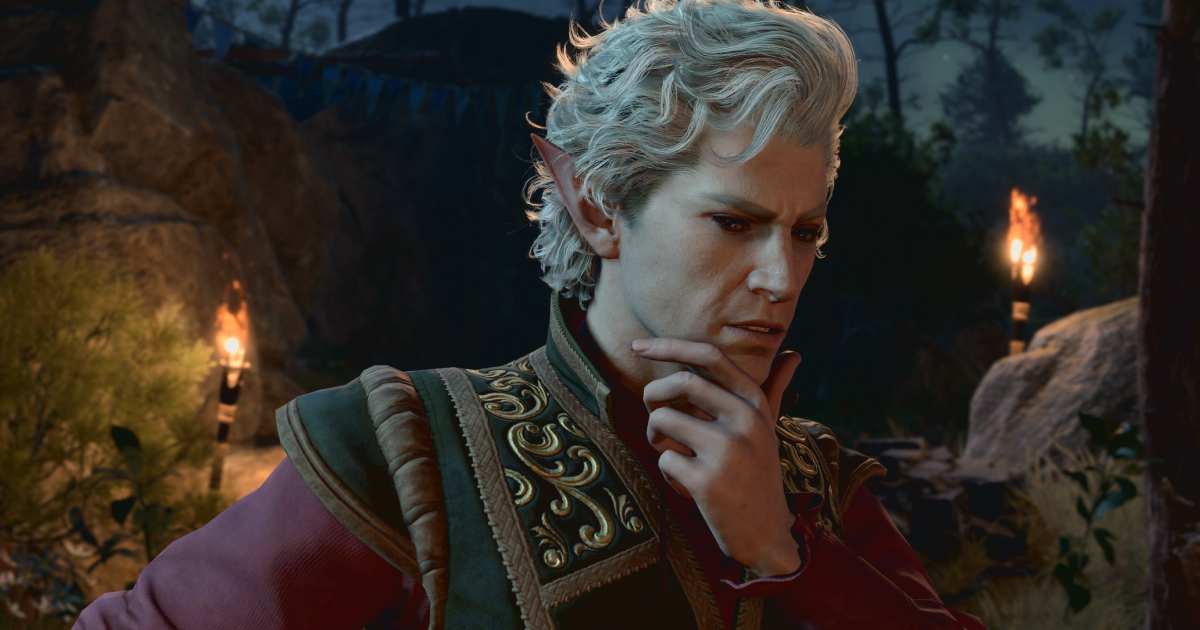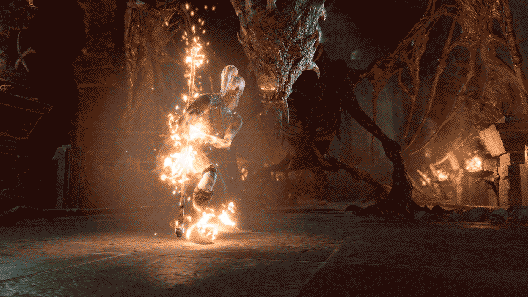A few weeks prior to its launch, Baldur’s Gate 3 looks like one of the most promising RPGs in recent memory. However, some devs are urging players not to rate all other games in the genre by such a high standard, appealing to Larian Studios’ unique combination of vast experience and resources.

What sparked the Baldur’s Gate 3 debate?
This all started with a Twitter thread by Strange Scaffold* head Xalavier Nelson Jr. (*the studio is best known for Space Warlord Organ Trading Simulator and the upcoming Max Payne-like shooter El Paso, Elsewhere).
He cited several things that separate Baldur’s Gate 3 from most RPGs in the market:
- Long development cycle that started back in 2017;
- Two previous games, Divinity: Original Sin and Original Sin II, “worth of tech and institutional knowledge to draw from”;
- Successful Early Access period lasting three years that provided Larian with community feedback, bug hunting, and cash flow;
- Huge team of over 400 developers across seven offices;
- The license for one of the largest entertainment IPs (Dungeons & Dragons).
That’s why Nelson Jr. is concerned that Baldur’s Gate 3 could be considered a “raised standard” to the entire genre and applied even to teams that didn’t have the resources, tools, and experience that Larian did.
Like a lot of people, I’m deeply excited about what the lovely folks at Larian accomplished with Baldur’s Gate 3, but I want to gently, pre-emptively push back against players taking that excitement and using it to apply criticism or a “raised standard” to RPGs going forward
1/10— Xalavier Nelson Jr. (@WritNelson) July 8, 2023
“This is not a new baseline for RPGs — this is an anomaly,” he noted, adding that trying to reach the same bar without the same experience and advantages “could kill en entire group fo studios.”
Nelson Jr. called for celebrating Larian and everything the team likely managed to achieve. But he noted that people who think other devs now have no excuse if their RPG doesn’t look or feel like Baldur’s Gate 3 are just creating “the expectations and conditions to ensure your favorite creators may never be able to give you the thing you love ever again.”

How did other developers react to this take on Baldur’s Gate 3?
Nelson Jr.’s thread went viral, with many developers from AAA companies and indie studios stepping in to support the main point.
For example, Grimlore Games (SpellForce 3) senior narrative designer Rebecca Harwick noted that while she expects Baldur’s Gate 3 to be a once-in-lifetime RPG, she hopes “no one expects a 10, 20, 40-person team to make one.”
This whole thread! You can’t be appalled about how much big games cost to make AND make those lavish productions the standard by which all games are judged.
I hope Baldur’s Gate 3 is a generous once-in-lifetime RPG. I hope no one expects a 10, 20, 40-person team to make one! https://t.co/bwEC314tF6
— Rebecca Harwick (@thelintspeed) July 9, 2023
Insomniac Games design manager Ryan McCabe urged others not to use a singular game to set expectations for everyone developing RPGs because it “isn’t useful and instead foolhardy.”
Obsidian Entertainment design director Josh Sawyer noted that “having the foundation set and the funding to build things on your own terms is invaluable.” This is not about downplaying talented people working on BG3, but about acknowledging this case is atypical for the games industry.
Great thread. The conditions under which BG3 was made are atypical. This is in no way a slight against the game or the people working on it, who are clearly passionate and talented.
Having the foundation set and the funding to build things on your own terms is invaluable. https://t.co/DpEgZqP1oc
— Brosephine Bronaparte (@jesawyer) July 9, 2023
Nic Tringali, game designer at Lunar Division (The Banished Vault), thinks players should always take into account labor hours and other resources spent on a game before judging it by a certain standard. “Games do not need to increase in size or technological complexity forever, that is just a narrative created by technology companies,” he said.
Also, frankly, even the concept of a “baseline” is a damaging concept. Games do not need to increase in size or technological complexity forever, that is just a narrative created by technology companies. If Larian wants to make a smaller game next time then that should be fine!
— nic tringali (@nictringali) July 8, 2023
James Berg, senior technical program manager for accessibility at Xbox, noted that the amount of dev effort put into Baldur’s Gate 3 could equal 2-3 other games in the RPG genre combined. “It’s Rockstar-level nonsense for scope. Only a few studio groups could even try this.”
Felipe Pepe, editor of the CRPG Book project, compared the situation around BG3 to what BioWare did with Baldur’s Gate II. Equipped with the engine and the right team, the studio “spent two years crunching and made one of the biggest RPGs ever.”
What’s interesting is that this is basically what Baldur’s Gate II did too. They had an engine & team ready, then spent two years crunching and made one of the biggest RPGs ever.
Just remember it has 17 companions (each with their own quests), 4 romances & A TON of side-quests. https://t.co/4p33pcU3Jx pic.twitter.com/mfIEUlUsOC
— Felipe Pepe (@felipepepe) July 8, 2023
Diablo IV senior designer Chris Balser also agreed with Nelson Jr., saying that it is important to remember that not all studios operate under the same conditions. He compared Baldur’s Gate 3 to Ultima VII, the favorite RPG of Larian founder Swen Vincke — “that’s a game that had 12 years of prior games feeding into it.”
but people too often only look at the fruits of labour and not the labour itself. same as it ever was, I guess. same deal with people wondering why there are so few artists painting like renaissance masters.
— chris balser 💙 (@doomfunk) July 8, 2023
Larian Studios launched Baldur’s Gate 3 in Early Access in October 2020. Players could try the first act, and the team spent almost three years listening to community feedback and constantly improving the game.
The full version will come out on August 3, and the first previews have been overwhelmingly positive so far. The hype is there, so it is interesting to see whether Larian will be able to deliver on player expectations.
For example, Fextralife’s take that Baldur’s Gate 3 is “going to be Game of the Year by a landslide” caught Swen Vincke off guard: “The pressure is on now — we’ll try not to f**k up. [Thanks] for that — oozes of energy through the studios just right now.”
